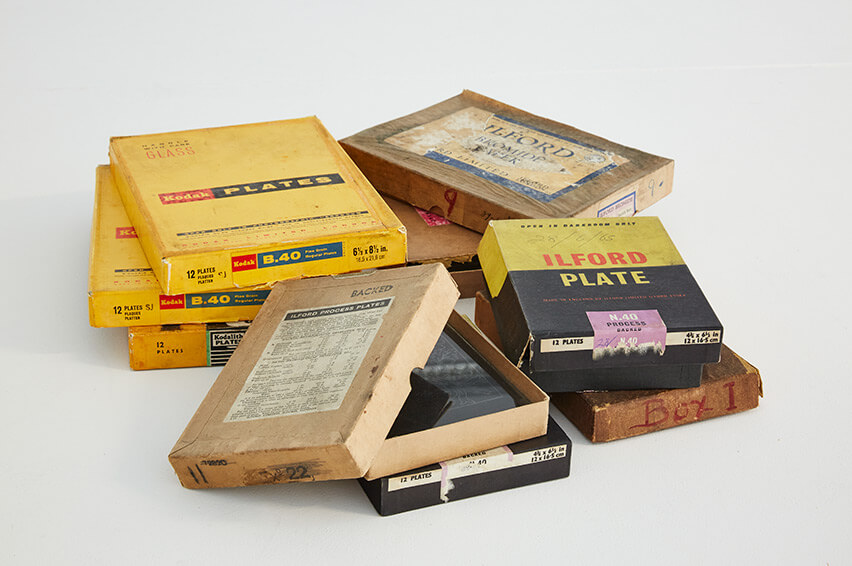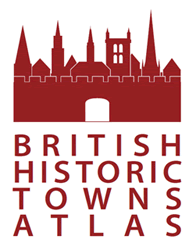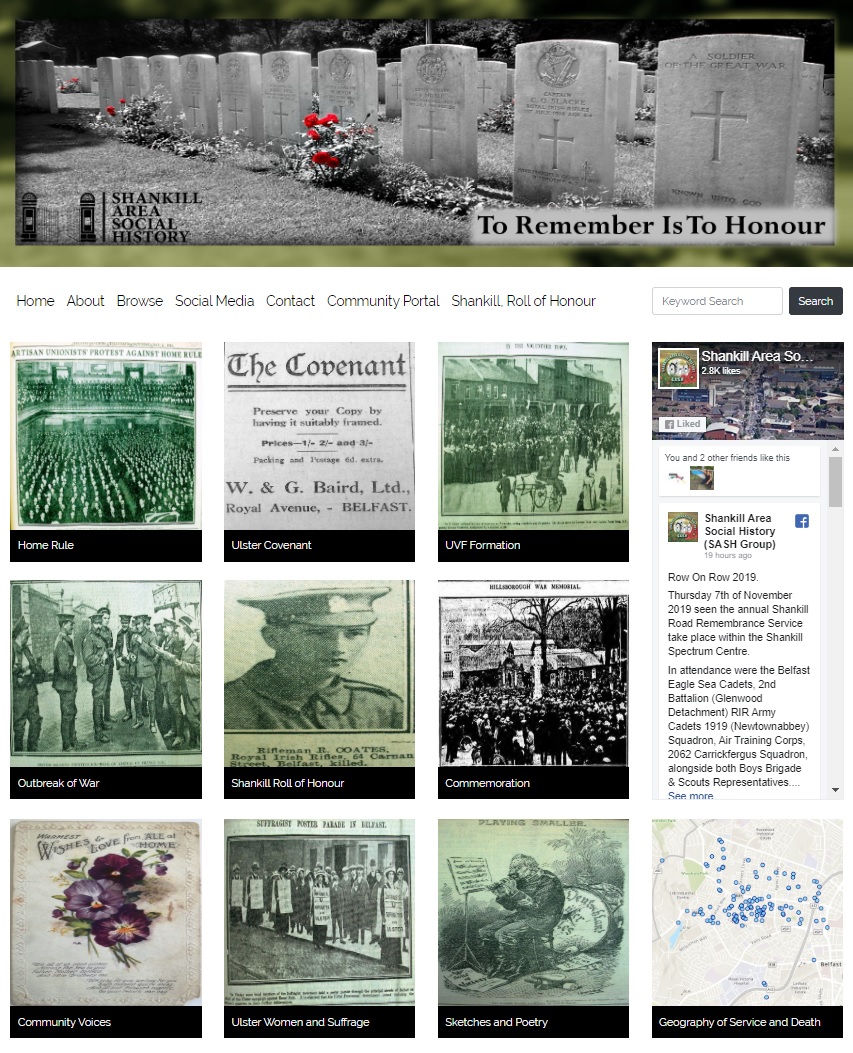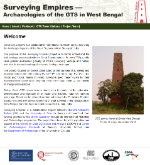2018-2019
Historic Towns Trust and the British Historic Towns Atlas
http://www.historictownsatlas.org.uk/
|
|
The British Atlas of Historic Towns project was established in 1963 as part of a pan-European project to produce atlases of consistent scale and content for the easy comparison of the growth and development of European cities. The aim is to enhance appreciation and understanding of the history and character of European towns by providing information and facilitating comparative study. The principles behind the atlases are to provide maps and text in a way which fills a gap both in knowledge and in tools for urban studies. The purpose of the mapping is to provide maps which allow for a visual understanding of each town at critical stages in its development and to provide a summary map which shows the town at the period just before industrialisation began to alter the urban form forever. The purpose of the text is to provide a well-researched but readable summary of the history of the town, incorporating the latest scholarship. The text is designed to be read by the non-specialist but is supported with full references. |
Shuttles and Shafts - Reviving the William Liddell Collection
https://www.shuttlesandshafts.com/
 The William Liddell archive is a collection of over 1600 glass plates used in the Jacquard damask weaving of Irish Linen.
The William Liddell archive is a collection of over 1600 glass plates used in the Jacquard damask weaving of Irish Linen. 
In its prime, William Liddell produced quality damask linen products for top hotels and the White Star line. A survey in 2007 revealed most of the industrial heritage had been sold or destroyed, but a large collection of plates were found abandoned, these have been rescued and are held at the Belfast School of Art, but due to their fragile state are inaccessible. This project will restore the plates, research the design history, generate a data-base and web site, respond to the design in a contemporary context, bringing the past into the public realm. Public and community engagement will be the ultimate focus, running 3 digital road shows gathering artefacts and oral histories, supported by a series of workshops aimed at Adult outreach education. Culminating in a pop-up exhibition and full documentation of the social significance of the lost designs.
Principle Investigator:- Patricia Belford - Senior Research Fellow
Project website can be viewed by following this link
 |
|  |
Shankill Great War Project
www.shankillgreatwar.com
|
|
Funded by The Heritage Lottery Fund, supported by The Centre for Data Digitisation & Analysis and Living Legacies 1914-18 Engagement Centre, will work with the project archivist and identify key materials to enhance the digital interface and support, research and training for the group and wider audience. Some research themes include:- Home Rule, UVF Formation, Sketches and Poetry and Shankill Roll of Honour. Key aims include:- An interactive web site with crowdsourcing capabilities, upskilling through digital training and research workshops, and working with the research archive to enrich key themes. |
Surveying Empires
www.surveyingempires.org/
|
|
Surveying Empires is a collaborative international research project exploring the landscape legacies of the Great Trigonometrical Survey of India. The purpose of the Surveying Empires project is to better understand the built heritage associated with the Great Trigonometrical Survey (GTS), and to raise greater awareness globally of India’s surveying heritage and history and also its international significance as ‘heritage in danger’. The project focuses on towers constructed for the purpose of surveying and mapping India in the 19th century by the GTS. Led by George Everest in the 1820s and 1830s, teams of skilled surveyors used these towers for their trigonometrical survey work, covering the entire sub-continent with a network of ‘triangulation stations’. Today, these GTS survey towers stand as a testament to the enterprise, determination and ingenuity of all those who mapped India two hundred years ago. Based on the research carried out through the Surveying Empires project, this web-site shows something of what survives in the landscapes of West Bengal from this huge and ambitious effort to map India. Surveying Empires is a collaborative project between Queen’s University Belfast (UK) and the University of Calcutta (India) and benefitted from funding granted by the British Academy through its International Mobilities and Partnerships programme. The project has drawn from the expertise and support of the Centre for Data Digitisation and Analysis (CDDA) and Centre for Archaeological Fieldwork at Queen’s University Belfast, and the Department of Archaeology of the University of Calcutta. |
The Encyclopedia of Indianapolis
|
|
This extensive work, a comprehensive and detailed study of the city of Indianapolis and its immediate environs, examines the culture, history, economics, and significant personalities of this industrial hub, which grew in importance to the nation throughout its history. In the traditional alphabetical arrangement, over 2200 signed articles (with primary sources frequently cited as well) give the user a variety and depth of information that might well become the model for other such efforts. Little-known facts spice the volume, such as John Muir's choosing Indianapolis as his home owing to its hardwood forests. The unfortunate lack of cross-references and the placement of entries under arguable alphabetical choices (e.g., music, 19th century; classical music) compromise the quick-reference value of this work, but these drawbacks are easily balanced by the breadth and authority of the articles. Indiana libraries will definitely want this, as will larger U.S. city and state collections. |
Young Life and Times (Northern Ireland) Survey
http://www.ark.ac.uk/ylt
|
|
All too often the opinions of young people are ignored when decisions are made about many of the issues involving them. However, the Young Life and Times Survey gives young people the chance to tell us about their experiences of school, and their views on politics, sectarianism and other social issues. By inviting respondents to suggest topics for the next year's survey, we make sure that the issues covered are relevant to the lives of young people in Northern Ireland today. From 1998 to 2000, Young Life and Times sought the views of all 12 to 17 year olds living in the same household as respondent to the Northern Ireland Life and Times survey. However, in 2003, the aims and methodology of the survey were changed. From 2003 onwards, Young Life and Times will record the attitudes of 16 year olds only. Further details can be found in the technical notes of the survey. Questions within the survey are grouped into modules. The range of modules varies from year to year. Whether you are at school or at college, work in the media, government or voluntary sector, or whether you are just interested in what the people of Northern Ireland think about the issues of the day, we hope you find something useful in this web-site. Browse the web-site and find out. Testimonial ‘I direct Young Life and Times (YLT) – an annual postal attitude survey of 16 year olds. It is in its 13th year now, which makes it one of the longest running surveys of this nature in the UK and Ireland. CDDA has been contracted to undertake the survey data digitisation for YLT for the last two years – a task which had previous been undertaken by contractors in England. YLT really benefitted from moving data digitisation and input to CDDA. Not only provide they a high data quality, follow a rigorous protocol in terms of data security and have local knowledge which improves data accuracy, but the close proximity of CDDA also meant that we saved time and any queries could be resolved face-to-face very quickly.’ Dirk Schubotz (YLT Director) |







